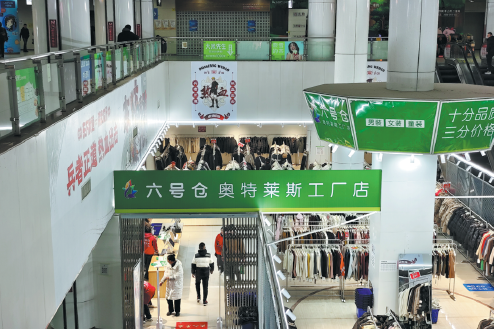Belt & Road boosts foreign investment


Domestic firms' M&A activity soars in areas involved with global initiative
The Belt and Road Initiative represented a big boon for Chinese investors amid an overall slump in outbound Chinese merger and acquisition activity in 2017, according to a report released by Morning Whistle Group, a Shanghai-based trade group specializing in cross-border M&A.
Chinese firms' M&A activity soared 47.4 percent in terms of transaction volume in countries and regions involved in the initiative, which contrasted with an overall 13.5 percent slide for Chinese investment in deals globally in 2017, the report showed.
The trend echoed statistics from the Ministry of Commerce, which found that overall investment in regions taking part in the Belt and Road Initiative ebbed only 1.2 percent, against a steeper drop of 29.4 percent globally.
The initiative, proposed in 2013, aims to revive the old Silk Road connecting Asia, Europe and Africa, by promoting trade, financial integration, infrastructure interconnectivity and people-to-people exchanges among the continents.
The top 100 Chinese deals from 2014 to 2017 by transaction volume were secured by 38 State-owned enterprises and 62 private ones, with the biggest buyers coming from Shanghai, Beijing and Guangdong province. The sectors that drew the most Chinese investors were technology, media and telecommunications (TMT), energy and healthcare.
China Vanke Co Ltd's $11.6 billion acquisition of property developer Global Logistics Properties Ltd made it the most generous spender. In total, seven deals involved transaction volumes of more than $1 billion.
Xiong Jianguo, an analyst at Morning Whistle, said Chinese companies have incorporated overseas investments as a solid and consistent part of their development strategies, with Alibaba Group Holding Ltd, for example, increasing its stake in Lazada Group last year, showcasing its long-term bet on Southeast Asia.
He said he expects more countries and regions involved in the initiative to emerge as popular destinations for outbound deals, a list currently dominated by developed economies such as the United States, the United Kingdom and Germany.
Singapore attracted 18 deals, the highest number of transactions taking place, followed by Israel's 14 and 10 in India.
"Singapore's well-governed and global leading financial sector can provide much-needed financial resources to support infrastructure projects in ASEAN countries," according to Zhang Miao, a research fellow at the University of Malaya's Institute of China Studies.
"The country's expertise in project design and planning, dispute settlement and logistics could also play an important role," she added.
Looking forward, Morning Whistle's report highlighted companies in healthcare and manufacturing as most likely to be sought-after targets in 2018.
In terms of the motivations behind outbound M&A activity, securing broader distribution channels and gaining market access are giving way to seeking out technological upgrades and capitalizing on premium foreign brands' established markets as key drivers, according to the report.



































